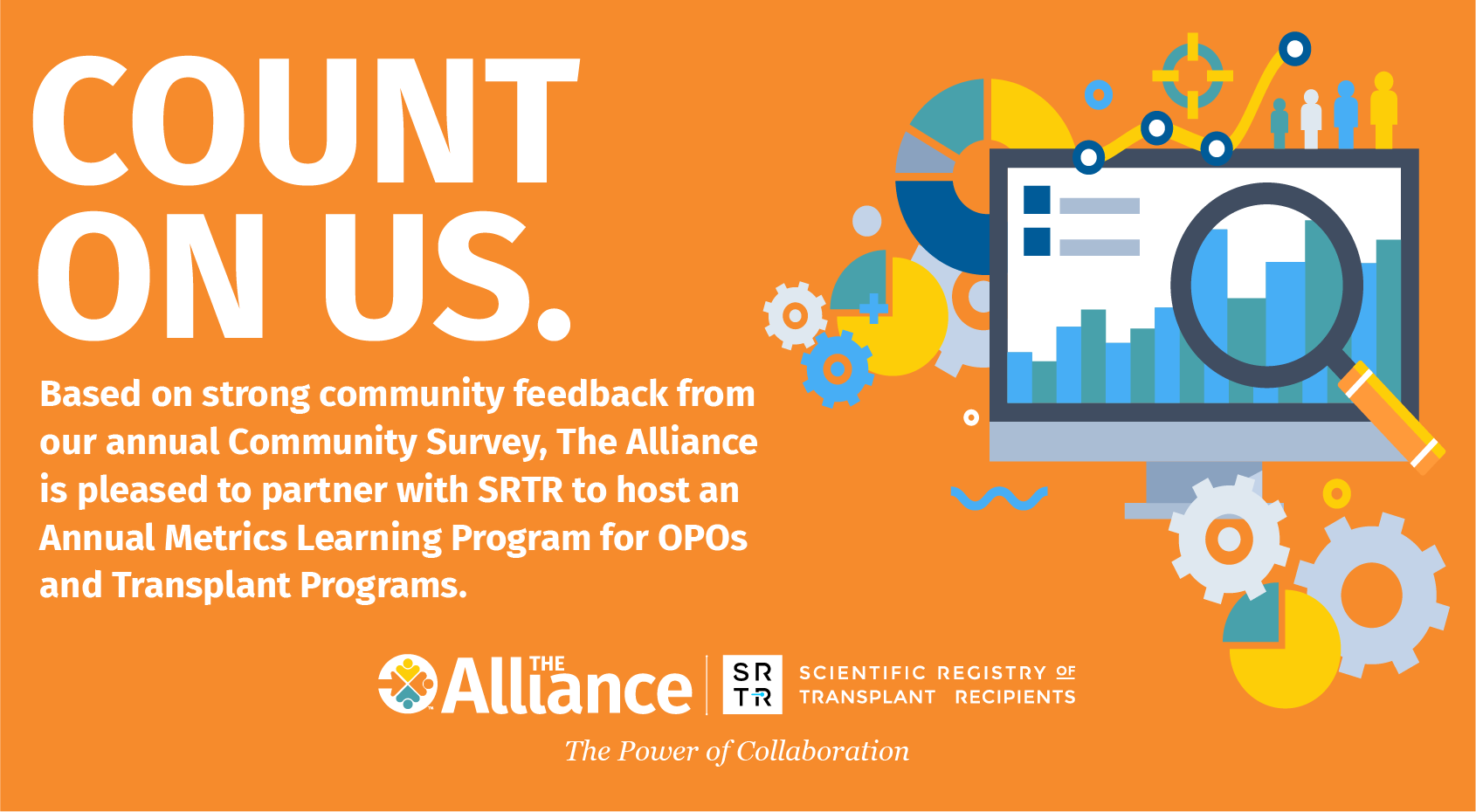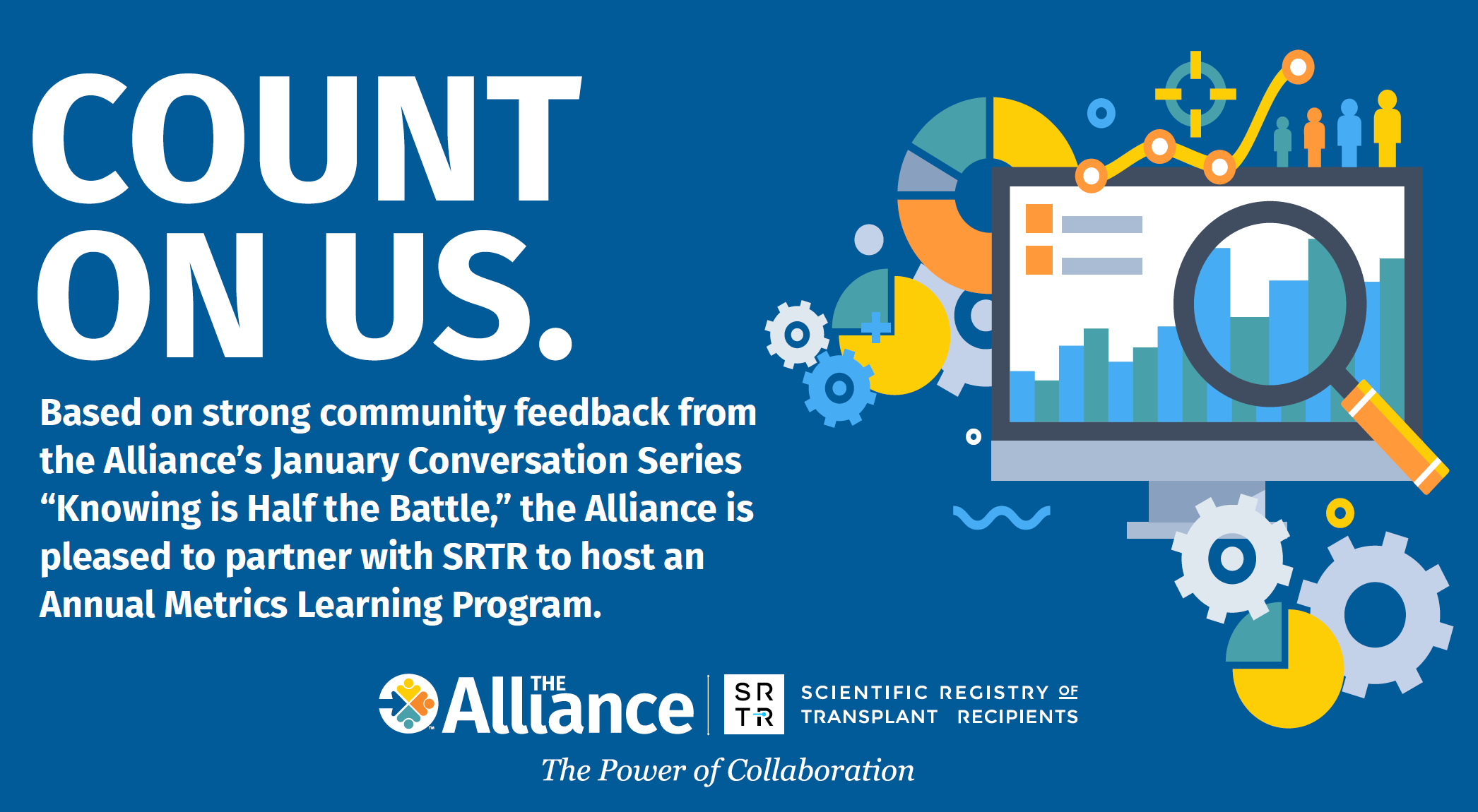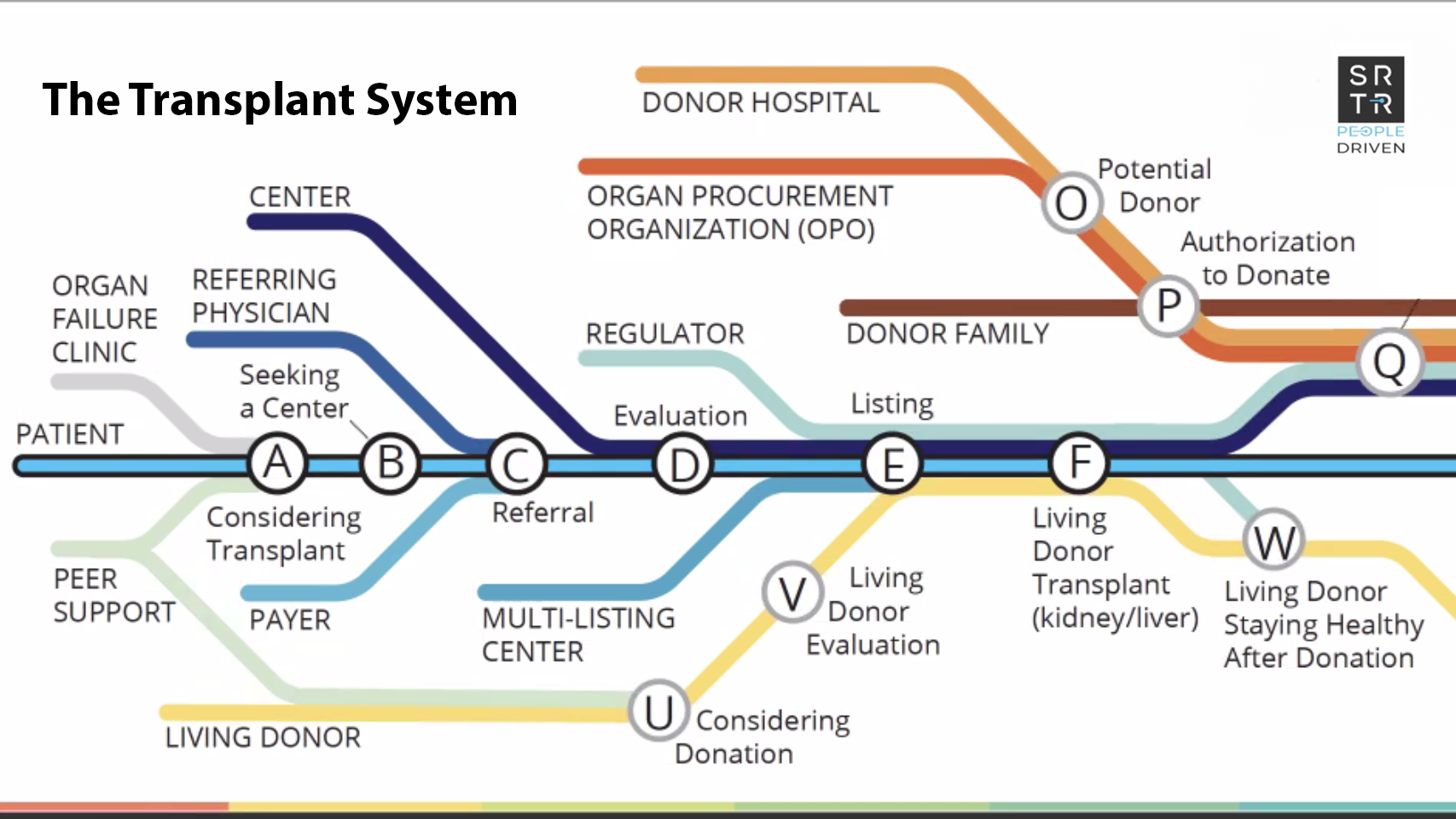Jon Snyder, PhD, MS, serves as the Director of Transplant Epidemiology for the Hennepin Healthcare Research Institute (HHRI) in Minneapolis, MN. In his role as a solid organ transplant epidemiologist for HHRI, Dr. Snyder serves as the Director of the Scientific Registry of Transplant Recipients, a federal contract with the Health Resources and Services Administration. In addition to his work with HHRI, Dr. Snyder serves as Treasurer of the Organ Donation and Transplantation Alliance, Secretary of Donate Life America, and he is a member of the Clinical Policy Board of LifeSource, the organ procurement organization serving Minnesota, North Dakota, South Dakota, and portions of Western Wisconsin. Dr. Snyder is a Statistical Editor for the American Journal of Transplantation and an Associate Editor of the journal Transplantation. He is an Associate Professor of Medicine at the University of Minnesota Medical School and an Adjunct Assistant Professor in the Division of Epidemiology and Community Health at the University of Minnesota’s School of Public Health. He holds a doctoral degree in epidemiology and a master’s degree in biostatistics from the University of Minnesota.
SRTR Annual Session: Using SRTR Data to Monitor OPO Program Performance
This conversation series will focus on providing information to Organ Procurement Organization leadership and quality professionals on the various performance metrics and tools made available by the Scientific Registry of Transplant Recipients.







